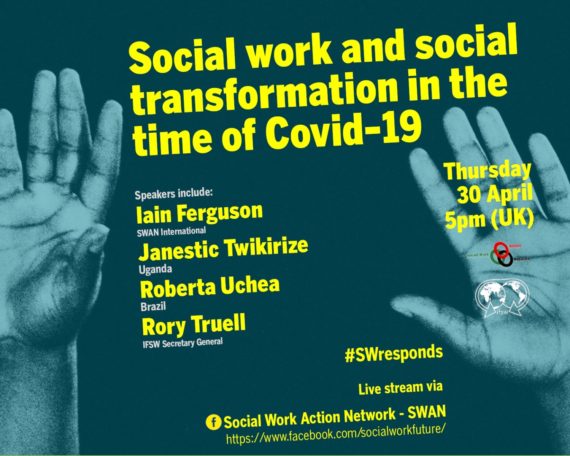On Saturday, July 14th, twenty people came along to Seomra Spraoi to participate in the provisional university workshop on activist research. Many of the projects in Europe (and further and field) that we have been in contact with, for instance through the KLF network, have used activist research as part of political projects and autonomous education. Examples include the Critical Counter Cartographies project (North Carolina) or the Precarias a la deriva group (Madrid). This workshop was very much a hands on attempt to reflect on and analyze aspects of the social world which are most relevant from the point of view of radical social change.
The workshop began with some discussion of how social change takes place, a question which is always relevant for research of this kind. Participants discussed the importance of lived experience, often experiences of material inequality, and the ideas that emerge from experience as important factors in social change. It was also noted that change often occurs through a wide array of everyday practices which are not linked to any explicit political discourse or organizing. The example of the rejection of Catholic Church in Ireland was given to indicate the way people can undermine forms of power and authority in their everyday lives without necessarily creating a political movement. It was also noted that while everyday experience is important, without some level of utopian vision our struggles will remain limited. As the facilitator, I introduced my understanding of social change by way of three quotes. The first one, Marx and Engels famous one from the German Ideology, goes like this: “Communism is not an ideal to which reality must adjust itself, but the real movement that destroys the present state of things.” I understand this in terms of two points. Firstly, radical social change does not begin from abstract visions of the future which we then impose on the world or convince others to go along with. Secondly, radical social change is rooted in forms of conflict, frustration and tension which are already happening around us and which give rise to everyday practices that point towards alternatives to ‘the present state of things’. What I think Marx and Engels are talking about here is that fact that, in their time, communism didn’t refer to the vision of a post-capitalist future society, but much more importantly to the actual everyday ways in which workers across Europe were doing things (dodging work, breaking factory machines, helping each other, forming unions) that, in the here and now, worked to undermine capitalism. The second quote comes from Raoul Vanneigem: “People who talk about revolution and class struggle without referring explicitly to everyday life, without understanding what is subversive about love and what is positive in the refusal of constraints, such people have a corpse in their mouth”. This evocative statement attests to the fact that when political ideology becomes separated from everyday experience it becomes a dead language, it fails to resonate with us. In other words, political analysis or ideology must always relate to and feed off the everyday practices happening all around us. The final quote comes from the Zapatista slogan ‘caminamos preguntando’ – we walk forward questioning. This highlights that political struggle and analysis is not about having all the answers but about continually asking questions. In sum, I wanted to highlight the importance of everyday experience for social change, the importance of relating everyday experience to political analysis, and the importance of continual questioning in that process of analysis. These ideas underpinned the way the workshop was structured.
Following this, the main part of the workshop began. We focused on the issue of rented accommodation. Because the workshop would be based on collective reflection on our shared experience, it was useful to focus on an issue of which we all had experience. I introduced four ‘lenses’ through which we could reflect on an analysis our experiences. The lenses were: Experience: experience simply brings us back to what it is actually like to live in rented accommodation, to the frustrations, the tensions, the difficulties but also the positives. It from these everyday experiences that change can ultimately come. Strategies: this lens focuses on the things people already do to make living in rented accommodation more bearable or more sustainable. These include getting rent allowance, moving outside the city to get a cheaper/better place, moving in with friends to create community and so on. It is important to recognize that there are already practices taking place through which people actively shape the way they live and their housing situation. Controls: this lens recognizes that while people organize themselves in order to improve their situation or survive in it, there are many factors which block or limit our capacity to do this. These include the deposit, the fact that you need references, contracts, the fact that landlords frequently operate outside the law, the absence of tenants’ rights legislation and so on. Actors: this lens draws out attention to various groups or organizations that are involved in a situation, including the people who live in rented accommodation, the people who own it, the people who make money out of it and the people who make the rules.
Having introduced these lenses we broke into groups of 5 and discussed each one. After about 25 minutes of discussion the groups came back together to share what they had discussed. Meanwhile, I wrote down what people were saying on the flipchart. The issues that arose included: the transience of rented accommodation; feelings of insecurity and the difficulty of creating a real ‘home’; the power imbalance between tenant and landlord; the joy of sharing a house with friends; the things we do to create community in shared accommodation; the possibility of negotiating with landlords; the legislation that exists; the control implied by references from previous landlords; the absences of alternatives and a long etc. After only 25 minutes discussion it became clear that by collectively reflecting on our own experience we can draw a map of the experiences, dynamics and actors which operate in and shape a particular social situation. This is particularly important in social movements where, in my own experience, people rarely discuss their own experience. It is also important because engaging with the level of everyday experience can allow us to do a number of things. (a) It allows us to understand what is most important in rented accommodation for those of us who live in it; (b) it allows us to identify where some of the most important issues might lie, and this is essential to politically intervene in a situation; and (c), through talking about our experience together we can develop a way of talking about and understanding our situation which is based on our experiences – this is a kind of creation of a political language through which to critically reflect on the issue, a political language which is steeped in experience and which we actively create together. Following a short break we returned for the second half of the workshop. At this stage we were running over time so this part of the workshop was a little bit rushed. In this part we took another look at what had come out of the previous discussion and identified what we would like to know more about. We focused on a couple of examples from each lens. For instance, for the experience lens we chose to focus on the experience of landlords themselves and the experiences of migrants – a group which were not heavily represented at the workshop but who form a significant part of people living in rented accommodation. Having identified what we wanted to know more about we broke into groups of 5 once more. Each group reflected on 1 of the lenses and developed research strategies and methods for ascertaining more information or greater understanding of their issue. After 10 minutes we came back together to see what the groups had come up with. The strategies the groups came up with reflected most of the ways in which researchers go about doing research. They included interviews, focus groups and drawing on existing statistics (quantitative data) or research (by contacting university-based researchers or organizations that do research). Novel strategies for contacting hard-to-reach groups wee also suggested, including setting up facebook pages. Importantly, most of the research strategies involved coming together with others who were affected in some way by rented accommodation. This is important for a number of reasons. First of all, as noted throughout the workshop, one of the difficulties of living in rented accommodation is the individualization it creates. If, through the research process we are constructing relationships with others, however, we can create moments or spaces which de-individualize rented accommodation and which create relations between people in this shared situation. Secondly, many of the research strategies suggested had a collective dimension – such as focus groups or community consultations. These strategies are both moments of research and moments of creating collectivity – or community – among those affected. In both these instances we see that researching for social change becomes a process of social change in itself. Thirdly, activists are typically concerned about failure to engage with people beyond the social movements or the ‘activist scene’. This relates to the question of difference, working and building relationships with people who are different from us. Often, if we take a very ideological stance on an issue the boundaries between ‘us’ and ‘them’ are greater. However, by coming together around a shared question in a scenario in which participants can participate in the creation of analysis and a political language to analyze shared experience, boundaries can be weakened and relationships across difference can be established. Finally, through the research process we can create allies by contacting, meeting and listening to advocacy organizations, academics, trade unions and others who are involved in a given issue. These allies are very important in terms of the research but may prove useful in terms of wider campaign work or organizing as well. At this point we were running 30 minutes over time and the workshop came to an abrupt end. There are lots of issues which could have been covered and addressed but were not due to time constraints. For instance, it would have been interesting to look at ways of recording and presenting the results of research (e.g. audio-visual media) as well as ways of opening up the research process to the public (e.g. if you are interested in a researcher’s work, instead of meeting for a coffee you can ask her to give a talk on the issues and so make your learning process open to all). It would also have been interesting to examine some examples of activist research. Perhaps some of these things can be addressed in a future workshop. Mick O’Broin
The link to the article is here: http://provisionaluniversity.tumblr.com/post/27328416533/notes-on-activist-research-workshop-on-collective

